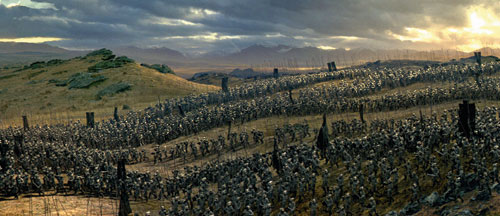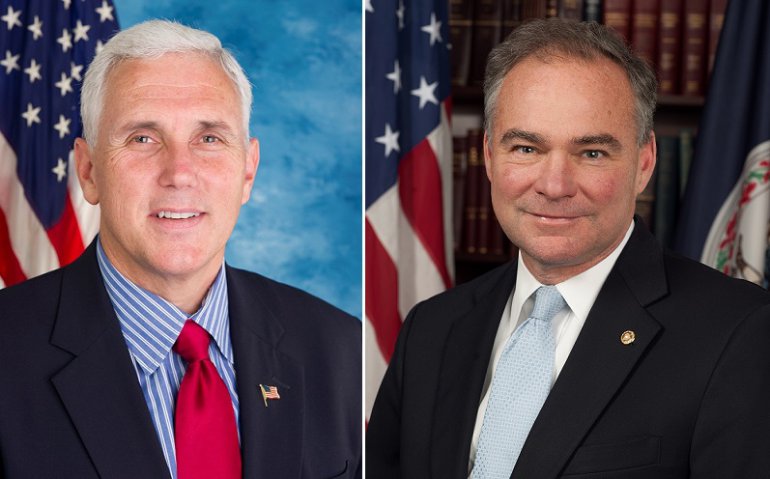As far as I can tell, the Kansas state Board of Education hearings on revising science standard is not televised or webcast, so I am resolved to using Google news oy Yahoo! news to learn what little is in the press. The rash of suicide bombings is blotting out coverage of these hearings, which saddens me. However, I’d like to mutter about what leavings the press has put in the back bin.
Google news seems to have articles, “like this one from the Kansas City Star”:http://www.kansascity.com/mld/kansascity/news/nation/11574932.htm, that give broad, shallow overviews of the hearings. From what little I can glean, I am unimpressed by the “minority” view (as the anti-evolution movement is named in this article). For instance, check out this gem:
A committee of three conservative Republican state board members – Steve Abrams, Kathy Martin and Connie Morris – and an auditorium filled with nearly 50 members of the media and 100 interested citizens listened to explanations of why molecular comparisons of different phylum of animals won’t support evolution and why life developing spontaneously from amino acids in the sea is unlikely.
My favorite part: “…explanations of why molecular comparisons of different phylum won’t support evolution and why life spontaneously developing from amino acids in the seas is unlikely” (emphasis placed by me). The key words are “won’t” – it appears that such evidence doesn’t yet exist, but might in the future – and “unlikely”.
It seems, from this news summary, that the minority sees itself as prophets. Prophets make claims about the future which are not based on any empirical evidence, but which they often claim come from a higher power or hidden power. Scientists operate in stark contrast, admitting there is knowledge to be gained while building theories on existing knowledge. It seems the witnesses at this hearing, representing the minority view, proffer only the expectation that there might someday be evidence of evolutions incompleteness.
I have no doubt, given the many scientific revolutions that showed a new theory was needed to explain failings of an old theory, that there will perhaps someday be a better theory of natural selection (there **I** go now with “perhaps” and “might”!). But I won’t offer up some nameless, faceless creator to fill gaps in modern knowledge. Throwing your hands in the air and proclaiming that “(a) god made it so” is the same as admitting defeat. We’re inquisitive beings, gifted with the ability to characterize and study our surrounding with great ingenuity. We are nature, capable of appreciating and studying itself. To cast explanation into the mind of a superbeing is sloth. We’re better than that, you and me, and we express that through science, art, and music. These are things that take the natural world and interpret it, and these are the talents we as a species have developed over our many thousands of years of existence.
As a scientist, I think it’s time we stopped whining about one theory or another and just taught the scientific method behind the development of theory itself. By doing this, I think a greater majority of people would see what it means to be a theory, how powerful a theory actually is, and how it is a sham and a ruse to claim that theories are weakened only by the gaps in their knowledge. Theories are weakened by new knowledge that contradicts the old, rather than a lack of knowleged about a thing or a process.
I am waiting for these minority opponents of evolution to stop end-running the scientific process, and instead use it to give us hard facts that directly contradict natural selection. That’s my challenge to these alleged scientists. If they cannot do it, then we know their ideas are not valuable.
Let me close by focusing on these members of the committee holding the hearings. They are frightening people, people with power but no sense of how to exercise it responsibly. For instance, in response to the “gem” I mentioned above, one committee member thanked the witness for the “facts” they had provided to better explain the weaknesses in evolution. “Won’t” and “unlikely” are not facts. They are prophesies.
Second, the “Washington Post is reporting that some members of the committee haven’t even read the proposed standard text”:http://www.washingtonpost.com/wp-dyn/content/article/2005/05/06/AR2005050600591.html. This all suggests that the decision has been made, and the hearings are a sham, as supposed by scientists throughout Kansas and the U.S. who refused to participate in these hearings for just that reason.
The Post article gives some history on the Kansas case, which suggests that (as one might guess) politics and personal religious beliefs play a bigger role than the function and education of science:
“In 1999, the Kansas State Board of Education, with a conservative majority _ which included Abrams _ deleted most references to evolution in the science standards. The next election led to a less conservative board, which adopted the current standards describing evolution as a key concept for students to learn before graduating high school.
Last year, conservatives captured a majority again, and many scientists fear the board will adopt revisions supported by intelligent design advocates. The conservative majority includes the three subcommittee members, Abrams; Kathy Martin, of Clay Center, and Connie Morris, of St. Francis.”
Or, how about this “dodge as reported in the New York Times”:http://www.nytimes.com/2005/05/05/education/06cnd-evolution.html?hp&ex=1115352000&en=99646bddc8de7257&ei=5094&partner=homepage:
“Can you tell us, sir, how old you believe the Earth is?” the lawyer, Pedro Irigonegaray, asked William S. Harris, a chemist, who helped write the proposed changes to the state standards.
“I don’t know,” Dr. Harris replied. “I think it’s probably really old.”
Humph. Non-creationist my ass. A scientist would have based his answer on the evidence at hand, which is radioisotope dating (which has excellent accuracy on geological timescales) as well as ratios of isoptopes of lead and uranium, and the age of the moon (which is not subject to the tectonic activity of the earth, which melts and churns its surface). All of these suggest that the earth is about 4.5 billions years old, give or take 1%. That’s what a scientists would have said. Not, “I think it’s probably really old.” He could have at least lent himself credibility and said “a few billion years old”.



